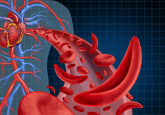EMA shares update on DARWIN EU and extends call for new real-world data partners

Two years on, DARWIN EU is ramping up its capacity to generate real-world evidence to support regulatory decision-making across Europe.
The Data Analysis and Real World Interrogation Network (DARWIN EU®) plays a crucial role in generating reliable real-world evidence (RWE) from real-world data (RWD) to support healthcare decision-making in Europe and improve understanding of the effectiveness and safety of medical treatments. Led by the European Medicines Agency (EMA) on behalf of the European Medicines Regulatory Network, DARWIN EU is increasing capacity for RWD studies, building on its existing portfolio of 14 completed and 11 ongoing RWD studies. In 2024, DARWIN EU expects to run over 70 RWD studies, increasing to more than 140 studies from 2025.
To achieve this goal, DARWIN EU is looking to onboard 10 new data partners in 2024 and 2025, adding to the existing network of 20 partners from 13 European countries. Data partners, who generate RWE from approximately 130 million patients across Europe from sources such as hospitals, primary care, health insurance, registries and biobanks, include the Netherlands Cancer Registry, IQVIA Disease Analyzer Germany and UK BioBank.
As a federated data network, within the DARWIN EU research framework anonymized RWD is standardized using the observational medical outcomes partnership (OMOP) common data model to ensure consistency across the data sources. Data partners also use standardized analytical methods provided by DARWIN EU to examine their data locally, enabling the rapid conduction of larger, multi-database studies.
DARWIN EU is exploring RWE generation across a broad range of topics and therapeutic areas covering drug utilization, vaccine effectiveness, disease epidemiology and patient characterization. Results from the 14 completed studies have been shared with the relevant EMA committees and other stakeholders, and can be discovered at HMA-EMA Catalogues of RWD sources and studies. Example studies include a review of electronic healthcare record databases examining the prevalence of rare blood cancers in Europe, and a population-based cohort study to understand the demographics, treatment patterns and overall survival of patients with multiple myeloma diagnosed between 2012 and 2022 across Europe.
By scaling up the number of RWD studies, DARWIN EU aims to transform the use of RWE to foster enhanced data-driven decision-making in Europe. As noted by Peter Arlett, Head of Data Analytics and Methods Task Force at the EMA on LinkedIn last year:
“It is exciting to watch this development up close, but I truly believe we are just scratching the surface of the potential of RWE. While the benefits will primarily be for patients – by delivering better evidence, enabling better regulatory decisions and safer and more effective medicines – they go beyond medicines regulation…. If the outcome is better evidence, better decisions, and safer and more effective medicines, isn’t that what patients and healthcare professionals want?”
Want regular updates on the latest real-world evidence news straight to your inbox? Become a member on The Evidence Base® today>>>






